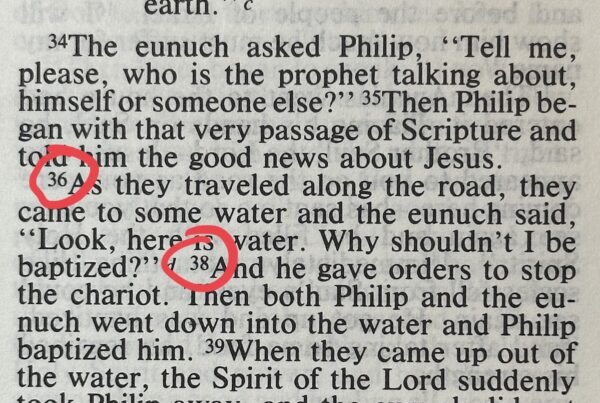Luyesh asks about whether Christians should read books about other religions like Islam. Islam denies the deity of Jesus and his crucifixion for our sins. While it accepts much of the historical background of the Bible, it also contends that the Bible often gives a distorted picture of God’s [Allah’s] revelation. Islam believes that the Qur’an (Koran) offers the exact “recitations” of God.
Should Christians read books written by those in non-Christian religions?
First off, I am thrilled to learn you are friends with someone of another faith. When you personally know someone of a different faith, you get a better glimpse of that religion. In principle, it is important to understand how others view Christianity and how their religion compares and contrasts to Christianity.
Second, it’s important to read books by those who are widely recognized scholars of that religion. In the case of Islam (and every other religion), many books and online resources are available that may not accurately represent the broad consensus of the religion.
Third, to understand the criticisms of Christianity by Muslims, one should also read Christian scholars who are experts in Muslim theology. This is crucial as you think through the claims of Muslims. For instance, one Muslim book you mentioned (Is the Bible God’s Word?) claims that the word “Allah” was included in the Scofield Bible and goes on to point out that in the latest edition of the Scofield Bible, the word “Allah” has since been omitted. Initially, it may appear that Bible translations are distorting the “truth.”
However, here are two quick points in response: (1) The instance of using “Allah” in an earlier edition of the Scofield Bible only appears in a footnote, not in the actual translation of the text. (2) The word actually used in this case is “Alah,” not the word “Allah.” “Alah” is a Hebrew word meaning oath or curse, while the word “Allah” is Arabic for “God.” This illustrates why it is important to consult resources by reputable Christians about Islam.
It is interesting to know that the word “Allah,” while not in the Scofield Bible, is found in Arabic Christian Bibles. Learning how the Arabic language works is vital in understanding why this is the case. In Arabic, they only have one word for “god”. So when Christians scholars translate the Bible into Arabic, they are forced to use the blanket term for god. For instance, Genesis 1 would be translated “In the beginning, [Allah] created the heavens and the earth”. One can see how this could be problematic. However, Christian Arabic speakers often use alternate terms to speak about the Christian God. My sister works with Arabic speakers and one of the terms her team uses when talking about the God of Christianity is “Yahweh” which allows them to avoid the all-encompassing term of Allah. The term “allah” is not to be feared in and of itself but rather Christians should look at how it is being used and in what context.
Finally, I would encourage you to continue to have conversations with your friend about religion. Do not fear questions about Christianity. Learn why you believe what you believe. Read books from Muslim scholars as well as Christian scholars about Islam. Keep the conversation going.
While it does not address Islam specifically, check out our article on the reliability of Scripture and the Trinity.
–Hannah Brimner, Technology Specialist at Room For Doubt.





